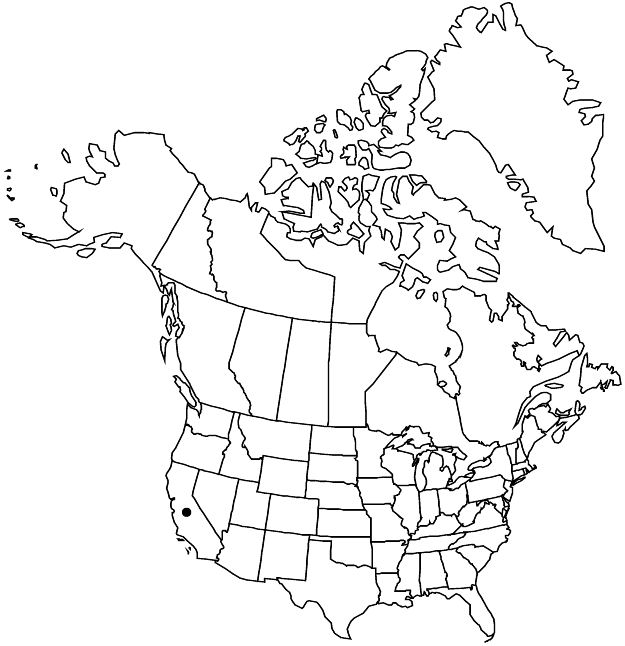Difference between revisions of "Horkelia californica"
Linnaea 2: 26. 1827.
FNA>Volume Importer |
imported>Volume Importer |
||
| (2 intermediate revisions by 2 users not shown) | |||
| Line 75: | Line 75: | ||
|publication year=1827 | |publication year=1827 | ||
|special status=Endemic;Illustrated | |special status=Endemic;Illustrated | ||
| − | |source xml=https:// | + | |source xml=https://bitbucket.org/aafc-mbb/fna-data-curation/src/2e0870ddd59836b60bcf96646a41e87ea5a5943a/coarse_grained_fna_xml/V9/V9_403.xml |
|subfamily=Rosaceae subfam. Rosoideae | |subfamily=Rosaceae subfam. Rosoideae | ||
|tribe=Rosaceae tribe Potentilleae | |tribe=Rosaceae tribe Potentilleae | ||
Latest revision as of 22:56, 5 November 2020
Plants ± tufted, green. Stems ascending to erect, (1–)5–10(–12) dm, hairs ± spreading. Basal leaves planar, (5–)8–40(–50) × 1.5–11 cm; stipules entire; leaflets 3–9 per side, separate to slightly overlapping, ovate to round or broadly elliptic, 5–60 × (7–)10–30(–40) mm, 1/2 to as wide as long, unlobed or irregularly cleft 1/6–3/4+ to midrib into 5–15 linear or oblanceolate to obovate coarsely toothed lobes, collectively 10–60-toothed, pilose to villous. Cauline leaves 4–10. Inflorescences ± open, flowers arranged individually and in glomerules. Pedicels 1–20 mm. Flowers 8–15 mm diam.; epicalyx bractlets narrowly oblong to ovate, 4–6(–8) × 1–2.5 mm, ± equal to sepals, entire or toothed; hypanthium 3–5.5 × 4–10 mm, 1/2 to nearly as deep as wide, interior glabrous or pilose; sepals spreading, lanceolate, 4–6.5(–8) mm; petals oblanceolate to elliptic or oblong, 3–8 × 1–4 mm, apex obtuse to rounded; filaments 0.5–3 × 0.2–1.5 mm, anthers (0.8–)1.3–1.8 mm; carpels (50–)80–200(–220); styles 2–4 mm. Achenes brown, 0.8–1 mm, smooth or slightly rugose.
Discussion
Varieties 3 (3 in the flora).
Plants of Horkelia californica have the largest hypanthia in the genus, and the hypanthia are significantly deeper than others that are equally wide. Other unique features include the often toothed bractlets and the slightly clawed petals that are often inwardly curved with undulate margins. These features also help to distinguish the species from Drymocallis glandulosa, with which it is often confused: both species have a similar gross morphology and overlapping ranges and habitats.
The three varieties recognized here were treated as distinct species by D. D. Keck (1938). The existence of intermediate populations makes varietal status the preferred option.
Selected References
None.
Lower Taxa
Key
| 1 | Lateral leaflets 3 or 4 per side, broadly elliptic to ovate, unlobed or cleft 1/6–1/4 to midrib. | Horkelia californica var. frondosa |
| 1 | Lateral leaflets 4–9 per side, ovate to round, cleft ± 1/2–3/4+ to midrib | > 2 |
| 2 | Hypanthium interior ± pilose; sepals often red-mottled adaxially; lateral leaflets cleft ± 1/2(–3/4) to midrib; styles 3–4 mm. | Horkelia californica var. californica |
| 2 | Hypanthium interior glabrous; sepals not red-mottled adaxially; lateral leaflets cleft 1/2–3/4+ to midrib; styles 2–3 mm. | Horkelia californica var. elata |
